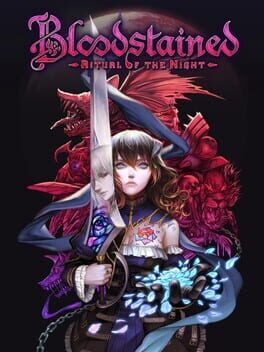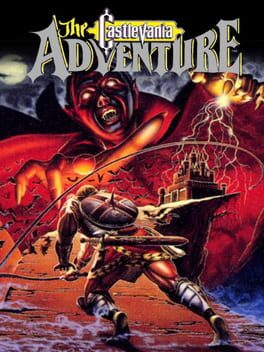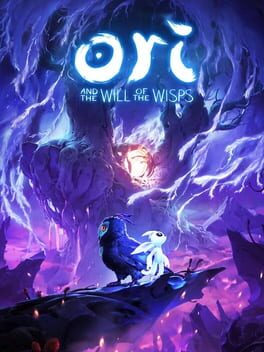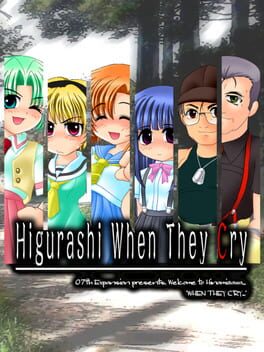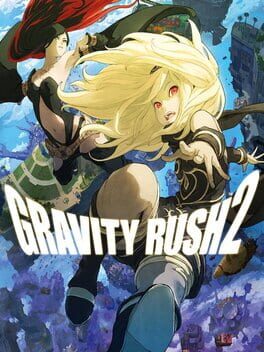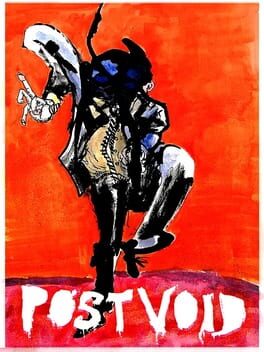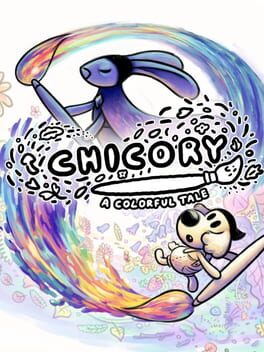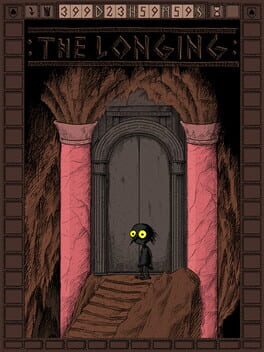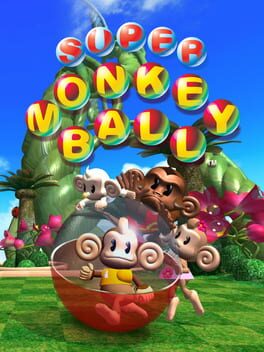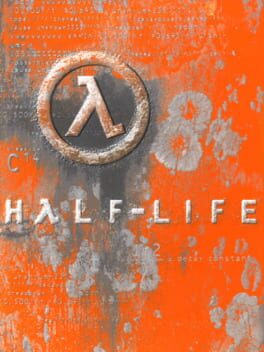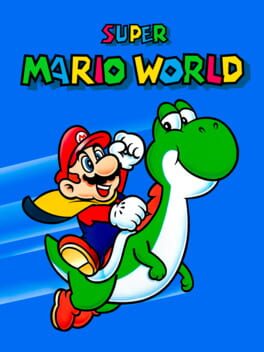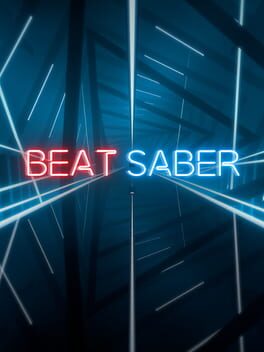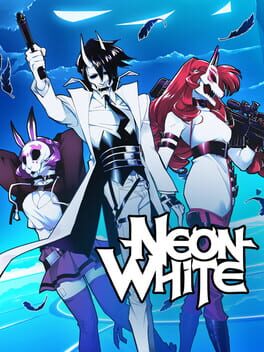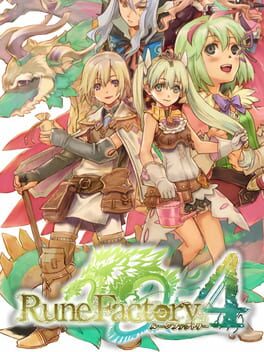AutumnLily
Disappointing. My initial feelings on Ritual of the Night were quite positive; starting aboard a ship in the midst of a storm made for a striking opening, the rpg systems seemed to have a decent amount of promise, and I loved the 2.5d graphical style here which created some really cool scenes.
It all just kind of fell apart the longer I played for though. Most of the rpg systems ended up either not being fleshed out enough, or more pressingly being a pain to actually engage with properly because of how much grinding for obscure item-drops they require. The story is a mess, and getting anything other than the worst ending will almost certainly require a guide due to excessively obscure progression checks. The last few regions in the game also felt like a significant downgrade in quality, with Den of Behemoths being easily the low-point. The balancing also felt off to me, which isn't surprising considering how much customisability there is but it was fairly trivial for me to turn one of the first spells in the game into something that just shredded every non-boss enemy (and most of the bosses, too) in the entire game.
It's sad as I really wanted to like this more. The variety of powers and subsequent character customisation is exciting, the game world is vast and varied, and the first half of the game features multiple really sweet moments with my personal highlight likely being the Twin Dragons fight. Ultimately the game did not stick the landing for me though, and ended up being just another fine, solidly enjoyable Metroidvania.
On a different note, I played the Switch port as it was what was available to me and strongly recommend people who want to play the game do it with a version of the game other than this one. I didn't let this experience alter my rating as I recognise most releases of the game likely don't have this issue, but the game did outright crash three times during my playthrough, setting me back to my most recent save room in the process, which is as frustrating as it sounds.
It all just kind of fell apart the longer I played for though. Most of the rpg systems ended up either not being fleshed out enough, or more pressingly being a pain to actually engage with properly because of how much grinding for obscure item-drops they require. The story is a mess, and getting anything other than the worst ending will almost certainly require a guide due to excessively obscure progression checks. The last few regions in the game also felt like a significant downgrade in quality, with Den of Behemoths being easily the low-point. The balancing also felt off to me, which isn't surprising considering how much customisability there is but it was fairly trivial for me to turn one of the first spells in the game into something that just shredded every non-boss enemy (and most of the bosses, too) in the entire game.
It's sad as I really wanted to like this more. The variety of powers and subsequent character customisation is exciting, the game world is vast and varied, and the first half of the game features multiple really sweet moments with my personal highlight likely being the Twin Dragons fight. Ultimately the game did not stick the landing for me though, and ended up being just another fine, solidly enjoyable Metroidvania.
On a different note, I played the Switch port as it was what was available to me and strongly recommend people who want to play the game do it with a version of the game other than this one. I didn't let this experience alter my rating as I recognise most releases of the game likely don't have this issue, but the game did outright crash three times during my playthrough, setting me back to my most recent save room in the process, which is as frustrating as it sounds.
It's easy, sometimes, to forget that FromSoft is at this point a triple-A studio. The games in their Souls quasi-series are so idiosyncratic, and remain so true to the personality of Demon's Souls and Dark Souls, that even as budgets would bloom in size they still kept much of that original slightly-janky charm. Even Elden Ring, a game whose colossal size makes its budget clear, and that unfortunately teeters into open world design industry standard bloat, still flies in the face of a lot of other industry standard design philosophies in such an intense way that other triple-A developers were up in arms upon the game's release at the notion that people were actually enjoying it so much.
Then, there's Sekiro. Don't get me wrong here, Sekiro is still undeniably a FromSoft game; obtuse, thematically deep and unusually challenging. That said a bit of me wonders how much influence Activision might have had on this game's final form, with the mass of skill trees and weapon unlock trees, something that makes my eyes glaze over at the very sight of, feeling both wholly extraneous to the experience the game is trying to provide and reminding me of the way that trash like God of War slaps on rpg systems into a decidedly not-rpg game just because that's the industry standard. There are hints of this design philosophy elsewhere with quick-time events, platforming based more around hunting for symbols to click on rather than thoughtfulness, even the bizarre inclusion of a boss rush mode, and whilst none of this was as objectionable to me as the tacked-on rpg aspects it still all hints at a design approach that is very much at odds with FromSoft's other output and which lands as off-putting to me. Even the game's insistence on having picking up an item cause in turn a pop-up, listing in entirety what an item does even if you've picked up said item ten times beforehand, to take over the screen and interrupt the gameplay feels like it may have come from an Activision higher-up tapping on Miyazaki's back to say that expecting people to go into their inventory to read what the items do there is a step too far.
At the same time there's an assured artfulness to Sekiro that excels beyond their other work, too. I adore the thematic exploration of this company's work just generally, and in particular I am very drawn to the almost tone poem nature of the Dark Souls trilogy, but Sekiro manages to use more exact language to tell such a wonderful and engaging tale about devotion and commitment, corruption and the nature of family. This aspect of the game is something I was not able to fully appreciate at the time for reasons I will get into shortly, but re-watching some of these cutscenes now and taking a more vested interest in the lore in the past day or so has revealed a real, subtle and powerful emotionality to the game, and I do find aspects of Sekiro quite beautiful as a result of this.
The biggest diversion from the Souls games is of course Sekiro's combat system, built around deflection, parries, posture, and the notion that you must not hesitate, must be prepared to be relentless. At its very peak this leads to some of the best fights FromSoft has ever presented; one-on-one fights with other warriors-with-swords like Owl, Genichiro and the final boss, or even mini-bosses like the Lone Shadows, O'Rin and the Ashina Elites, present such intense battles, that mechanically encourage you to never let up and that carry this almost rhythmic joy to them once, after many iterations, you start to truly understand the timings of those deflections and how to respond to your opponent's actions. Genuinely thrilling, adrenaline surging stuff, and immensely rewarding to gain a handle on after the steep learning process.
Conversely, when Sekiro's fights deviate from this structure I found the combat honestly lacking. Demon of Hatred might well rank below Bed of Chaos as my least favourite FromSoft boss ever, and fights like the Guardian Ape encounters, Headless Ones, Chained Ogres, Shichimen Warriors and the Bulls all attempt to mix things up, to encourage you to engage with the full extent of what Sekiro's combat system is capable of, but I find many of these fights frustrating in how they don't feel like they actually play to Sekiro's strengths, and tedious in some of the play-patterns they can encourage. This is emphasised by the game's difficulty; for me Sekiro was the hardest game this company has released by a substantial margin in part because the Souls games allow a lot more means for you to influence their difficulty, but mostly because the Souls games largely ask for your patience, for you to be willing to learn and meet the game on its own terms, whereas Sekiro asks, undeniably, for impressive reflexes and dexterity. I found myself mostly able to meet the game on these terms, and I legitimately enjoyed a large part of the process involved in learning to beat some of the more imposing bosses here, but the moment Sekiro deviates from its strengths and asks you to beat up some rampaging ape, whilst still keeping the difficulty high for these ill-fitting encounters, it starts to really lose me and leave me, for the first time since Dark Souls 2, genuinely frustrated (and honestly; baffled).
There are some other issues I have with the game also; a small handful of mini-bosses necessitate the usage of consumables that are very limited in quantity until late into the game, the scaling up in difficulty of areas reaches the point that by Fountainhead Palace I was finding some of the encounter design quite unpleasant especially when the game asks that you fight multiple enemies at once that are fundamentally designed to be fought one-on-one with deflects and parries (all too often my response to this was just to run past them, which is equally unsatisfying), the game is just frankly over-long which makes its insistence on recycling large amounts of content feel even more bothersome.
There are points where I look back on Sekiro and feel like I could rate the game even as much as a full star lower and not have that much regret, yet at the same time it feels undeniable that some of FromSoft's very best work exists within here also and the moments when it shines it is glorious. I wish I liked this game more than I do.
Then, there's Sekiro. Don't get me wrong here, Sekiro is still undeniably a FromSoft game; obtuse, thematically deep and unusually challenging. That said a bit of me wonders how much influence Activision might have had on this game's final form, with the mass of skill trees and weapon unlock trees, something that makes my eyes glaze over at the very sight of, feeling both wholly extraneous to the experience the game is trying to provide and reminding me of the way that trash like God of War slaps on rpg systems into a decidedly not-rpg game just because that's the industry standard. There are hints of this design philosophy elsewhere with quick-time events, platforming based more around hunting for symbols to click on rather than thoughtfulness, even the bizarre inclusion of a boss rush mode, and whilst none of this was as objectionable to me as the tacked-on rpg aspects it still all hints at a design approach that is very much at odds with FromSoft's other output and which lands as off-putting to me. Even the game's insistence on having picking up an item cause in turn a pop-up, listing in entirety what an item does even if you've picked up said item ten times beforehand, to take over the screen and interrupt the gameplay feels like it may have come from an Activision higher-up tapping on Miyazaki's back to say that expecting people to go into their inventory to read what the items do there is a step too far.
At the same time there's an assured artfulness to Sekiro that excels beyond their other work, too. I adore the thematic exploration of this company's work just generally, and in particular I am very drawn to the almost tone poem nature of the Dark Souls trilogy, but Sekiro manages to use more exact language to tell such a wonderful and engaging tale about devotion and commitment, corruption and the nature of family. This aspect of the game is something I was not able to fully appreciate at the time for reasons I will get into shortly, but re-watching some of these cutscenes now and taking a more vested interest in the lore in the past day or so has revealed a real, subtle and powerful emotionality to the game, and I do find aspects of Sekiro quite beautiful as a result of this.
The biggest diversion from the Souls games is of course Sekiro's combat system, built around deflection, parries, posture, and the notion that you must not hesitate, must be prepared to be relentless. At its very peak this leads to some of the best fights FromSoft has ever presented; one-on-one fights with other warriors-with-swords like Owl, Genichiro and the final boss, or even mini-bosses like the Lone Shadows, O'Rin and the Ashina Elites, present such intense battles, that mechanically encourage you to never let up and that carry this almost rhythmic joy to them once, after many iterations, you start to truly understand the timings of those deflections and how to respond to your opponent's actions. Genuinely thrilling, adrenaline surging stuff, and immensely rewarding to gain a handle on after the steep learning process.
Conversely, when Sekiro's fights deviate from this structure I found the combat honestly lacking. Demon of Hatred might well rank below Bed of Chaos as my least favourite FromSoft boss ever, and fights like the Guardian Ape encounters, Headless Ones, Chained Ogres, Shichimen Warriors and the Bulls all attempt to mix things up, to encourage you to engage with the full extent of what Sekiro's combat system is capable of, but I find many of these fights frustrating in how they don't feel like they actually play to Sekiro's strengths, and tedious in some of the play-patterns they can encourage. This is emphasised by the game's difficulty; for me Sekiro was the hardest game this company has released by a substantial margin in part because the Souls games allow a lot more means for you to influence their difficulty, but mostly because the Souls games largely ask for your patience, for you to be willing to learn and meet the game on its own terms, whereas Sekiro asks, undeniably, for impressive reflexes and dexterity. I found myself mostly able to meet the game on these terms, and I legitimately enjoyed a large part of the process involved in learning to beat some of the more imposing bosses here, but the moment Sekiro deviates from its strengths and asks you to beat up some rampaging ape, whilst still keeping the difficulty high for these ill-fitting encounters, it starts to really lose me and leave me, for the first time since Dark Souls 2, genuinely frustrated (and honestly; baffled).
There are some other issues I have with the game also; a small handful of mini-bosses necessitate the usage of consumables that are very limited in quantity until late into the game, the scaling up in difficulty of areas reaches the point that by Fountainhead Palace I was finding some of the encounter design quite unpleasant especially when the game asks that you fight multiple enemies at once that are fundamentally designed to be fought one-on-one with deflects and parries (all too often my response to this was just to run past them, which is equally unsatisfying), the game is just frankly over-long which makes its insistence on recycling large amounts of content feel even more bothersome.
There are points where I look back on Sekiro and feel like I could rate the game even as much as a full star lower and not have that much regret, yet at the same time it feels undeniable that some of FromSoft's very best work exists within here also and the moments when it shines it is glorious. I wish I liked this game more than I do.
Unsure what is the most distressing here; your whip being completely downgraded any time you take even the slightest bit of damage, the truly heinous game feel that makes even walking feel like you're half-heartedly dragging yourself through sludge, or the strings of multiple frame-perfect jumps in a row even in the first level of the game.
I'm in the minority in actually preferring the original Ori game, even if only very slightly. On some level it's a weird conclusion to come to as Ori and the Will of the Wisps is just straight up better in a lot of ways; the movement pool is expanded, reintroduces the old abilities in swift fashion and many of the new abilities are enjoyable too, the chase sequences are much less frustrating due to being quite a bit easier to sight-read than in the first game, the game embraces being a Metroidvania rather than doing the awkward straddling of genres that Ori 1 did, the awful save system from the first game has been scrapped, the combat has been dramatically improved (which is to say it's now pretty good now, rather than so bad you just run past every enemy you can), and the uninspiring skill tree from the first game has been replaced with a badge system seemingly pulled almost directly from Hollow Knight.
And yet, despite the moment-to-moment gameplay just being a more enjoyable, engaging and well-designed experience, Ori 2 sometimes left me with a bit of a hollow feeling whilst playing it. A part of this is the story beats, with the same absence of emotional subtlety that Ori 1 had also, feel a lot more explicitly manipulative in something that often feels like a repeat of the first game's story; it was hard at points for me to take Ori 1's story sincerely, but here it feels just impossible. A part of this too is that I don't think being Bigger is actually necessarily Better in this case; this game has races, side-quests (including an arduous trading side-quest which is made hard to keep track of by all the Moki blending together) and multiple different ways to regrow a town, and while some of this adds to the game at some points an awful lot of the time completing the side content just felt like I was ticking off boxes. Maybe a full-on Metroidvania wasn't what I wanted all along, certainly I feel like the strongest parts of Ori tended to be the more linear, focused sections, or maybe a Metroidvania with all this Content can only really come together for me if the game has as much personality as Hollow Knight does in order to make that content more memorable rather than just going through the motions.
And yet, despite the moment-to-moment gameplay just being a more enjoyable, engaging and well-designed experience, Ori 2 sometimes left me with a bit of a hollow feeling whilst playing it. A part of this is the story beats, with the same absence of emotional subtlety that Ori 1 had also, feel a lot more explicitly manipulative in something that often feels like a repeat of the first game's story; it was hard at points for me to take Ori 1's story sincerely, but here it feels just impossible. A part of this too is that I don't think being Bigger is actually necessarily Better in this case; this game has races, side-quests (including an arduous trading side-quest which is made hard to keep track of by all the Moki blending together) and multiple different ways to regrow a town, and while some of this adds to the game at some points an awful lot of the time completing the side content just felt like I was ticking off boxes. Maybe a full-on Metroidvania wasn't what I wanted all along, certainly I feel like the strongest parts of Ori tended to be the more linear, focused sections, or maybe a Metroidvania with all this Content can only really come together for me if the game has as much personality as Hollow Knight does in order to make that content more memorable rather than just going through the motions.
Higurashi is at its strongest when it is concerned with trauma, both on a personal and a communal level. When it understands the effects trauma can have on someone, and when it dearly wishes to find some way out of the cycles of violence that can so often cause traumatised individuals, groups and generations to, knowingly or unknowingly, condemn others to trauma also. Whilst these are words that don't always apply to Higurashi on a broader level, in its exploration of these themes Higurashi feels both mature and astute; there are so many moments when someone's reaction to the trauma they've experienced or are experiencing feels painfully, heartbreakingly, incisively on-point.
This element of Higurashi is so successful in part because Ryukishi has a deep empathy for his characters. He has an unwillingness to wholly discard someone for their misdeeds, and a deep desire to look inside people and see what makes them tick, what makes people choose the paths they do, and wants you to understand this also. There's one particular instance where I can't bring myself to be onboard with his hardline approach of "hate the sin and not the sinner", and this approach feels to me incongruous with the fact that there are characters in the story that are just wholly irredeemable (Satoko's uncle, for instance), but it's hard to deny there's something compelling about how much Ryukishi cares, and him asking you to try and care just a little bit more too.
Beyond all of this, Higurashi is concerned with generational divides, small village cultures on the edge of being wiped out by modernisation and a fury at the heartlessness of bureaucracy and how it leaves people to drown, with paranoia and fear and the kind of deep, unrelenting love that would have you tear apart everything for someone, with hope and despair and miracles. Higurashi is also concerned with friendship, and despite "the power of friendship" being one of the most worn out and uninspired themes for anime, manga and (I assume) visual novels it actually manages to make such a deeply impassioned plea towards this that I was just entirely hooked in by Higurashi's beating heart.
These are the highs of Higurashi, but it is also ultimately an often-uneven experience. There is a small amount of content here that is indefensible, and which I'm shocked I don't see more condemnation of. Basically any scene set in Angel Mort is just a lock to star creepy sexualisation of teenage girls played up for humour and treated as just completely acceptable, multiple side-character adults in the story make occasional creepy comments along these lines also, and a key character, Irie, is obsessed with the idea of putting one of the game's youngest characters in a maid outfit and marrying her. This content accounts for maybe 3% of the game if I had to guess, so a very minor amount, but it's all just wretched. It's so bizarre too because elsewhere Higurashi is able to render its women with remarkable depth, taking common character archetypes and ultimately subverting just about every expectation you enter with about them in ways that feel natural and which let you really understand how each character ticks by the end of the story, and yet despite this it just can't consistently Be Normal about them at all and just has to have its creepy moments. A couple of the Angel Mort scenes genuinely made me feel a bit ill to read and I would not blame someone for just refusing to read Higurashi because of this content.
More broadly, Higurashi is also desperately in need of a harsher editor at points. Higurashi's eight chapters combined are over one and a half million words long, or longer than reading the entire Lord of the Rings trilogy three times over, and took me 100 hours to finish (which I gather is faster than most people, even). During my readthrough I had multiple extended breaks, which is partially just that my life has been busy this past year, but partially that Higurashi has a habit of stretching out its slice-of-life scenes, confused metaphor-laden inner-monologues and moments of hopeless despair far beyond their point being effectively made. My final break from Higurashi lasted four months, only for me to discover upon my return that the final chapter, beyond a certain point, starts to descend into what feels at times like third-rate fanfiction, and it left me wishing that Ryukishi knew how to communicate his story a little bit more succinctly rather than stretching things on beyond the point where all the intrigue had been quelled and all the questions answered.
A mixed bag, then, but one with a lot to say and a lot it believes in, with an amazing sense of mystery, and some lovable characters that have a lot more going on that you first suspect. Wildly imperfect, at times exhausting or even just reprehensible, but fascinating and with a lot of heart behind its horror. I can't say that I would ever recommend Higurashi, but I did get a lot from the experience.
This element of Higurashi is so successful in part because Ryukishi has a deep empathy for his characters. He has an unwillingness to wholly discard someone for their misdeeds, and a deep desire to look inside people and see what makes them tick, what makes people choose the paths they do, and wants you to understand this also. There's one particular instance where I can't bring myself to be onboard with his hardline approach of "hate the sin and not the sinner", and this approach feels to me incongruous with the fact that there are characters in the story that are just wholly irredeemable (Satoko's uncle, for instance), but it's hard to deny there's something compelling about how much Ryukishi cares, and him asking you to try and care just a little bit more too.
Beyond all of this, Higurashi is concerned with generational divides, small village cultures on the edge of being wiped out by modernisation and a fury at the heartlessness of bureaucracy and how it leaves people to drown, with paranoia and fear and the kind of deep, unrelenting love that would have you tear apart everything for someone, with hope and despair and miracles. Higurashi is also concerned with friendship, and despite "the power of friendship" being one of the most worn out and uninspired themes for anime, manga and (I assume) visual novels it actually manages to make such a deeply impassioned plea towards this that I was just entirely hooked in by Higurashi's beating heart.
These are the highs of Higurashi, but it is also ultimately an often-uneven experience. There is a small amount of content here that is indefensible, and which I'm shocked I don't see more condemnation of. Basically any scene set in Angel Mort is just a lock to star creepy sexualisation of teenage girls played up for humour and treated as just completely acceptable, multiple side-character adults in the story make occasional creepy comments along these lines also, and a key character, Irie, is obsessed with the idea of putting one of the game's youngest characters in a maid outfit and marrying her. This content accounts for maybe 3% of the game if I had to guess, so a very minor amount, but it's all just wretched. It's so bizarre too because elsewhere Higurashi is able to render its women with remarkable depth, taking common character archetypes and ultimately subverting just about every expectation you enter with about them in ways that feel natural and which let you really understand how each character ticks by the end of the story, and yet despite this it just can't consistently Be Normal about them at all and just has to have its creepy moments. A couple of the Angel Mort scenes genuinely made me feel a bit ill to read and I would not blame someone for just refusing to read Higurashi because of this content.
More broadly, Higurashi is also desperately in need of a harsher editor at points. Higurashi's eight chapters combined are over one and a half million words long, or longer than reading the entire Lord of the Rings trilogy three times over, and took me 100 hours to finish (which I gather is faster than most people, even). During my readthrough I had multiple extended breaks, which is partially just that my life has been busy this past year, but partially that Higurashi has a habit of stretching out its slice-of-life scenes, confused metaphor-laden inner-monologues and moments of hopeless despair far beyond their point being effectively made. My final break from Higurashi lasted four months, only for me to discover upon my return that the final chapter, beyond a certain point, starts to descend into what feels at times like third-rate fanfiction, and it left me wishing that Ryukishi knew how to communicate his story a little bit more succinctly rather than stretching things on beyond the point where all the intrigue had been quelled and all the questions answered.
A mixed bag, then, but one with a lot to say and a lot it believes in, with an amazing sense of mystery, and some lovable characters that have a lot more going on that you first suspect. Wildly imperfect, at times exhausting or even just reprehensible, but fascinating and with a lot of heart behind its horror. I can't say that I would ever recommend Higurashi, but I did get a lot from the experience.
2017
I'm kind of amazed how much this game endeared itself to me considering how much I do not enjoy so many core parts of the gameplay. The mission design is the biggest culprit here; lots of incessantly running back and forth between npcs to deliver information, spamming the talk button on every person in an area until one actually responds to you, ponderous stealth missions that can often be trivialised due to you being able to fly and walk on walls. The combat has you fighting the same five enemies all throughout the game's playtime as you spam your same small arsenal of moves in the same way you did fifteen hours ago, the talismans and level-up system cram in rpg mechanics that are largely superfluous to the experience, and any of the challenges that place demands on your dexterity are undone by the controls being fairly sloppy and imprecise.
But despite all of this, I actually had a pretty good time and even checked out some of the side-content after completing the main storyline. Part of this is the wonderful art direction, the charming characters, the moments of wacky creativity, the game certainly has things going for it outside of the actual gameplay, but mostly the big draw here is the vibes. A bit of a weird comparison, but Gravity Rush 2 actually reminds me pretty strongly of Super Mario Sunshine; sloppy and often frustrating gameplay, especially when you're trying to engage with what the game wants you to actually be doing, but such a relaxing, fun atmosphere to everything that just existing in these spaces carries a certain joy to it regardless. The big difference here is that whilst Sunshine has enclosed levels, and is always nudging you along towards your next accomplishment, Gravity Rush 2 is an open world game that is very content to let you just fly around achieving not-very-much if that's what you really want to do. The moment I escaped the starting area and found the open world I legit spent over three hours flying around it, weaving my way through pieces of largely-meaningless currency that were strewn about, rather than engaging with any of the actual Content, because the vibes were just that good and left me actually able to relax for a while.
Sometimes all you need is some chill music, some enticing locales, and the freedom to gently flop through the skies wherever your heart desires.
But despite all of this, I actually had a pretty good time and even checked out some of the side-content after completing the main storyline. Part of this is the wonderful art direction, the charming characters, the moments of wacky creativity, the game certainly has things going for it outside of the actual gameplay, but mostly the big draw here is the vibes. A bit of a weird comparison, but Gravity Rush 2 actually reminds me pretty strongly of Super Mario Sunshine; sloppy and often frustrating gameplay, especially when you're trying to engage with what the game wants you to actually be doing, but such a relaxing, fun atmosphere to everything that just existing in these spaces carries a certain joy to it regardless. The big difference here is that whilst Sunshine has enclosed levels, and is always nudging you along towards your next accomplishment, Gravity Rush 2 is an open world game that is very content to let you just fly around achieving not-very-much if that's what you really want to do. The moment I escaped the starting area and found the open world I legit spent over three hours flying around it, weaving my way through pieces of largely-meaningless currency that were strewn about, rather than engaging with any of the actual Content, because the vibes were just that good and left me actually able to relax for a while.
Sometimes all you need is some chill music, some enticing locales, and the freedom to gently flop through the skies wherever your heart desires.
2020
On one hand Chicory is possibly the best 2D Zelda game ever made. The paintbrush is such a cool concept to design little mini-dungeons around, and the expanding move-set and list of mechanics play with this idea beautifully and make for some simple but enjoyable puzzles and some pleasing tests of whether you understand your environment. These parts of the game are modest, joyful and fun, are thankfully free of any combat, and when they do culminate in boss fights these make for emotionally intense audio-visually spectacular highlights.
On the other hand Chicory is such a charming, genuinely thoughtful little game. It has a lot of things to say about the process of making art, a lot of different perspectives to share and investigate regarding inspiration, motivation and how to take healthy attitudes towards your artistry and treat yourself with kindness. The game handles all of this so tenderly that I ended up tearing up at a few points, especially during one particular side-quest that explored the frustrations artists can go through trying to get their art seen, measuring themselves against others, and feeling pressure to become known and how those frustrations can lead to losing track of why they loved making art in the first place. More than anything Chicory just wants, for a moment, to get you excited to be creative, and to help you find enjoyment in making messy and imperfect (the way the brush works feels like it has been designed precisely to make sure you can't be a perfectionist) art.
I love these quiet little towns, each with their own little identities, each with a collection of silly little animals all with just enough personality that you'll recognise them as they migrate around the map. The vibes are often very comfy, aided by the lovely musical score, so much so that when the game veers into darker or more disconcerting territory it genuinely got under my skin. I also adore this game's attitude towards how you engage with it; you can hand-paint every single screen if you want, or ignore that completely and make a beeline through the story, the rewards for completing side-content are (with one minor quality-of-life exception) only ever aesthetic in nature meaning there's no mechanical pressure to complete them and it's just a case of whether you want to do so, and there's no visual counter pointing out how many more collectibles there are to go find. You are simply presented with the tools to play with, the space to play within, and are allowed to engage with that to whatever extent you wish; this might not be a lot to ask for, but in a world where so many modern games bombard you with quest lists, daily challenges and collection completion trackers it's such a relief to play a game with such a plethora of side-content that doesn't feel the need to pressure you into doing any of it.
Of note, as someone who generally prefers controllers I strongly recommend playing this game with a mouse-and-keyboard instead of a controller if possible due to the nature of painting in-game. I was lucky enough to get to go one step further thanks to owning a drawing tablet, making for one of the most enjoyable experiences I've ever had in regards to controlling a game, and whilst I can enthusiastically recommend this way to experience the game it is hardly necessary.
Just a lovely little game, through-and-through, overflowing with heart.
On the other hand Chicory is such a charming, genuinely thoughtful little game. It has a lot of things to say about the process of making art, a lot of different perspectives to share and investigate regarding inspiration, motivation and how to take healthy attitudes towards your artistry and treat yourself with kindness. The game handles all of this so tenderly that I ended up tearing up at a few points, especially during one particular side-quest that explored the frustrations artists can go through trying to get their art seen, measuring themselves against others, and feeling pressure to become known and how those frustrations can lead to losing track of why they loved making art in the first place. More than anything Chicory just wants, for a moment, to get you excited to be creative, and to help you find enjoyment in making messy and imperfect (the way the brush works feels like it has been designed precisely to make sure you can't be a perfectionist) art.
I love these quiet little towns, each with their own little identities, each with a collection of silly little animals all with just enough personality that you'll recognise them as they migrate around the map. The vibes are often very comfy, aided by the lovely musical score, so much so that when the game veers into darker or more disconcerting territory it genuinely got under my skin. I also adore this game's attitude towards how you engage with it; you can hand-paint every single screen if you want, or ignore that completely and make a beeline through the story, the rewards for completing side-content are (with one minor quality-of-life exception) only ever aesthetic in nature meaning there's no mechanical pressure to complete them and it's just a case of whether you want to do so, and there's no visual counter pointing out how many more collectibles there are to go find. You are simply presented with the tools to play with, the space to play within, and are allowed to engage with that to whatever extent you wish; this might not be a lot to ask for, but in a world where so many modern games bombard you with quest lists, daily challenges and collection completion trackers it's such a relief to play a game with such a plethora of side-content that doesn't feel the need to pressure you into doing any of it.
Of note, as someone who generally prefers controllers I strongly recommend playing this game with a mouse-and-keyboard instead of a controller if possible due to the nature of painting in-game. I was lucky enough to get to go one step further thanks to owning a drawing tablet, making for one of the most enjoyable experiences I've ever had in regards to controlling a game, and whilst I can enthusiastically recommend this way to experience the game it is hardly necessary.
Just a lovely little game, through-and-through, overflowing with heart.
2020
I have spectacularly conflicting feelings about this game.
My first few hours with The Longing were something very strange and special. Those first couple days of exploring this underground cave system, looking for purpose, and trying to see all the grim, lifeless wonder you can find down there, were meditative, mystifying and at times even magical. In these opening hours The Longing has a thick atmosphere of loneliness, solitude and yearning, and I was left wanting to spend more time in this world exploring these emotions.
After those early couple days though, a little over a three months ago, the game lost and never really regained that sense of wonder. There are two big reasons, the first being the time-gating the game utilises to stretch its content out over its advertised 400 days. You'll find areas you can't access until a week, two weeks or even a month after you initially discover them. The justifications for these are often very entertaining (well, I have to wait for moss to grow over that rock down there so that I can land on it safely, should take about two weeks), and this delightful mix of dry and absurdist humour is laced throughout the whole game, but the effect these enforced waits had on my playthrough were disastrous.
Whenever I'd finish all the content I could find I would leave the game for a couple weeks to come back post-time-gate, invariably forget that I was meant to return so leave the game waiting twice as long as I'd intended, would have forgotten a lot about the world and its layout by the time I did return, and would then be impatient to get to the new content having waited a few weeks to be able to access it. The ways the game asks you to be patient when playing it largely worked for my early days with it, encouraging the meditative tone I relished there, but the ways it encourages patience on a wider more meta level asking you to wait a substantial amount of time to access content were greatly to its detriment.
The other problem is that the game's attitude towards patience and waiting whilst playing was just pushed too far for me beyond a certain point in the game, around about the point when I found the mattock. Breaking crystals with the mattock can often take ten minutes, digging through walls can be similarly problematic, and that's not to get into the Hall of Eternity. I'm one of the people who found the meditative nature of the early game really rewarding and even I was ultimately forced to read whilst my shade did things, or to turn off the game whenever a particularly long task was initiated with the intent of returning later once my Shade had completed it.
I get what the creators were going for with all this, and I'm glad it seemed to resonate with some people very strongly, but ultimately I just wanted to be able to immerse myself in this world, my Shade's explorations, and the strange, ominous mood found here, and found the game pushing back against that frustrating. My first five hours of playtime were spent over my first couple days of playing and were very enjoyable; my latter five spread over three and a bit months ultimately resulting in me going for the worst ending as I felt like I had been done with the game for a long time already.
My first few hours with The Longing were something very strange and special. Those first couple days of exploring this underground cave system, looking for purpose, and trying to see all the grim, lifeless wonder you can find down there, were meditative, mystifying and at times even magical. In these opening hours The Longing has a thick atmosphere of loneliness, solitude and yearning, and I was left wanting to spend more time in this world exploring these emotions.
After those early couple days though, a little over a three months ago, the game lost and never really regained that sense of wonder. There are two big reasons, the first being the time-gating the game utilises to stretch its content out over its advertised 400 days. You'll find areas you can't access until a week, two weeks or even a month after you initially discover them. The justifications for these are often very entertaining (well, I have to wait for moss to grow over that rock down there so that I can land on it safely, should take about two weeks), and this delightful mix of dry and absurdist humour is laced throughout the whole game, but the effect these enforced waits had on my playthrough were disastrous.
Whenever I'd finish all the content I could find I would leave the game for a couple weeks to come back post-time-gate, invariably forget that I was meant to return so leave the game waiting twice as long as I'd intended, would have forgotten a lot about the world and its layout by the time I did return, and would then be impatient to get to the new content having waited a few weeks to be able to access it. The ways the game asks you to be patient when playing it largely worked for my early days with it, encouraging the meditative tone I relished there, but the ways it encourages patience on a wider more meta level asking you to wait a substantial amount of time to access content were greatly to its detriment.
The other problem is that the game's attitude towards patience and waiting whilst playing was just pushed too far for me beyond a certain point in the game, around about the point when I found the mattock. Breaking crystals with the mattock can often take ten minutes, digging through walls can be similarly problematic, and that's not to get into the Hall of Eternity. I'm one of the people who found the meditative nature of the early game really rewarding and even I was ultimately forced to read whilst my shade did things, or to turn off the game whenever a particularly long task was initiated with the intent of returning later once my Shade had completed it.
I get what the creators were going for with all this, and I'm glad it seemed to resonate with some people very strongly, but ultimately I just wanted to be able to immerse myself in this world, my Shade's explorations, and the strange, ominous mood found here, and found the game pushing back against that frustrating. My first five hours of playtime were spent over my first couple days of playing and were very enjoyable; my latter five spread over three and a bit months ultimately resulting in me going for the worst ending as I felt like I had been done with the game for a long time already.
2001
Going from playing Banana Mania, to playing Super Monkey Ball 2, to finally playing this game, has been a strange experience; each later game individually good and enjoyable on their own merits, only for their flaws to become more apparent when compared with what came before.
The issues with Banana Mania's physics have already been excellently laid out by Pangburn. They're the exact sort of things that I didn't really notice at the time, but that become very clear the moment you play the earlier games with the original physics engine; Banana Mania is weirdly frictionless in a way that leads to a lot of issues, and whilst as someone relatively new to the series I wrote off me getting stuck on some levels for as long as half an hour as me just being inexperienced and playing badly, the moment I returned to these older games it became so clear that it actually wasn't really my fault after all but rather that the newer physics engine sets you up to fail by just not being suited to some of these challenges.
Super Monkey Ball 2's physics engine is night-and-day better than Banana Mania's, and I enjoyed the game a lot, but again the moment you compare it to the first Super Monkey Ball game issues start to rear their head. SMB2 leans hard into gimmick levels in an attempt to make itself stand out, and whilst some of the gimmick levels rule a lot of them either lack the replay value (especially ones where the entire challenge is to figure out a specific timing or route) or are just explicitly not fun to try and master in the way that the more physics-focused levels are; Launchers is such a heinous example that I couldn't bring myself to try and complete that game's harder arcade modes. Some of these gimmick levels also push at what you're really capable of in-game with the game's fixed camera, which I assume is a part of why Banana Mania would go on to have camera control; I think both these outcomes are not really ideal.
And then you come to Super Monkey Ball and in contrast it's just this perfect little package. Every level has a fun little idea or challenge to it, the game is so focused on the physics and execution that replaying earlier levels is a joy as you see how far you've come, whilst learning the later levels is this constant process of having things click into place in your head. The gameplay loop is also just effortlessly effective; you play through an arcade mode level selection only to get stuck on a specific level and have your run end, so you go work over that stumbling block in practice mode learning its intricacies so that next time you'll get a little bit further in arcade mode, every time getting a bit more practice on the earlier levels you find harder too and seeing your performance constantly grow. Expert mode is kind of nonsense, but just as you start to hit your limit the game starts slowly feeding you more continues as if to say you can do this is you just stick with it.
I also love the aesthetics of this one. The giant bomb at the top of the screen would probably be considered 'objectively' bad, it takes up a lot of screen real estate and just obscures your vision, but damn if it doesn't just ooze personality.
The issues with Banana Mania's physics have already been excellently laid out by Pangburn. They're the exact sort of things that I didn't really notice at the time, but that become very clear the moment you play the earlier games with the original physics engine; Banana Mania is weirdly frictionless in a way that leads to a lot of issues, and whilst as someone relatively new to the series I wrote off me getting stuck on some levels for as long as half an hour as me just being inexperienced and playing badly, the moment I returned to these older games it became so clear that it actually wasn't really my fault after all but rather that the newer physics engine sets you up to fail by just not being suited to some of these challenges.
Super Monkey Ball 2's physics engine is night-and-day better than Banana Mania's, and I enjoyed the game a lot, but again the moment you compare it to the first Super Monkey Ball game issues start to rear their head. SMB2 leans hard into gimmick levels in an attempt to make itself stand out, and whilst some of the gimmick levels rule a lot of them either lack the replay value (especially ones where the entire challenge is to figure out a specific timing or route) or are just explicitly not fun to try and master in the way that the more physics-focused levels are; Launchers is such a heinous example that I couldn't bring myself to try and complete that game's harder arcade modes. Some of these gimmick levels also push at what you're really capable of in-game with the game's fixed camera, which I assume is a part of why Banana Mania would go on to have camera control; I think both these outcomes are not really ideal.
And then you come to Super Monkey Ball and in contrast it's just this perfect little package. Every level has a fun little idea or challenge to it, the game is so focused on the physics and execution that replaying earlier levels is a joy as you see how far you've come, whilst learning the later levels is this constant process of having things click into place in your head. The gameplay loop is also just effortlessly effective; you play through an arcade mode level selection only to get stuck on a specific level and have your run end, so you go work over that stumbling block in practice mode learning its intricacies so that next time you'll get a little bit further in arcade mode, every time getting a bit more practice on the earlier levels you find harder too and seeing your performance constantly grow. Expert mode is kind of nonsense, but just as you start to hit your limit the game starts slowly feeding you more continues as if to say you can do this is you just stick with it.
I also love the aesthetics of this one. The giant bomb at the top of the screen would probably be considered 'objectively' bad, it takes up a lot of screen real estate and just obscures your vision, but damn if it doesn't just ooze personality.
1998
I have some amount of respect for Half-Life. The game's eye for set-pieces, and constant insistence on re-inventing itself, makes for a varied experience that seems ahead of its time in some ways. The game also did a lot for immersive storytelling in games, though this aspect of Half-Life comes across as very clunky nowadays when contrasted against what followed in its footsteps. I will also say that, despite the harsh words that are about to follow, I enjoyed playing through Half-Life quite a bit more than my rating indicates; I played through the game in the company of friends, and everyone gently mocking the game's failings throughout helped make for an enjoyable time.
The problem is, for all it managed to do for the medium Half-Life has sadly aged almost impressively horrendously. The opening couple hours, which play out almost as survival horror, manage to still capture some amount of the tension they likely had a couple decades ago, but almost everything after the point where soldiers start showing ends up being some brand of frustrating with awkward enemy placement, cheap deaths, and myriad moments where I had to look up what I was even meant to do. Following this downward trend in quality to its natural conclusion fighting the final boss was an intensely unpleasant experience, all to get an ending that for me fell flat on its face.
I also deeply disliked the quick-save/quick-load feature and how the game seems very much designed with it in mind. Maybe I just suck at FPSes but there are countless moments in this game that only really make sense in a world where you assume most players are actively using quick-saving. Actually using this feature though leads to what feels like a very disjointed experience, robbing you of any feeling of genuine accomplishment and making every moment of disaster only a button press away from having never happened. Talking to friends I get the impression that a lot of PC games of this era were designed with this style of play in mind, and wow do I not get on with it at all.
The problem is, for all it managed to do for the medium Half-Life has sadly aged almost impressively horrendously. The opening couple hours, which play out almost as survival horror, manage to still capture some amount of the tension they likely had a couple decades ago, but almost everything after the point where soldiers start showing ends up being some brand of frustrating with awkward enemy placement, cheap deaths, and myriad moments where I had to look up what I was even meant to do. Following this downward trend in quality to its natural conclusion fighting the final boss was an intensely unpleasant experience, all to get an ending that for me fell flat on its face.
I also deeply disliked the quick-save/quick-load feature and how the game seems very much designed with it in mind. Maybe I just suck at FPSes but there are countless moments in this game that only really make sense in a world where you assume most players are actively using quick-saving. Actually using this feature though leads to what feels like a very disjointed experience, robbing you of any feeling of genuine accomplishment and making every moment of disaster only a button press away from having never happened. Talking to friends I get the impression that a lot of PC games of this era were designed with this style of play in mind, and wow do I not get on with it at all.
1990
Super Mario World feels weirdly disappointing to me as a follow up from Super Mario Bros 3. Whereas SMB3 will take an idea, iterate on it, and try and push it in a bunch of different directions sometimes to the verge of breaking point, SMW hops from one idea to another so quickly that it doesn't really give you room to breathe. It makes the whole thing less satisfying, I want to see what these ideas are capable of but the game is so desperate to move onto the next idea as quickly as possible. Maybe this makes for a more varied experience on some level, except there's less of a chance for the ideas to leave an impression on you due to this lack of iteration turning the game into kind of a blur as a result.
It sounds like a nitpick, but I'm also frustrated with the step backwards regarding bonuses. The lives system found in many of these older platformers is a deeply antiquated system in myriad ways that I don't really want to go into (I'd be here a while), and a sad result of this system is many games leant heavily into treating extra lives as an exciting reward. SMB3 got that extra lives aren't actually rewarding really and so instead gave your piles of power-ups and strange items you could store for later use, something that was genuinely pretty cool and a ton of fun! That's largely gone here though sadly, with all the minigames you find just ticking your total lives ever higher.
It's hard to argue against Super Mario World being a more sophisticated game than what came before it, and it has a more consistent aesthetic too. It's certainly a very solid game, one that's easy enough to have fun with and would clearly have seemed incredible at the time of its release. From today's perspective though, compared to Super Mario Bros 3 I guess I just find it lacking in quite as much soul. Decades after its release I played SMB3 for the first time and could feel the energy bursting through it, this constant feeling of innovation, trying to see how far it could push its ideas, that feeling is baked into its very being. Super Mario World may be more polished (and has certainly aged better), but paradoxically as a result it somehow makes me feel so much less.
It sounds like a nitpick, but I'm also frustrated with the step backwards regarding bonuses. The lives system found in many of these older platformers is a deeply antiquated system in myriad ways that I don't really want to go into (I'd be here a while), and a sad result of this system is many games leant heavily into treating extra lives as an exciting reward. SMB3 got that extra lives aren't actually rewarding really and so instead gave your piles of power-ups and strange items you could store for later use, something that was genuinely pretty cool and a ton of fun! That's largely gone here though sadly, with all the minigames you find just ticking your total lives ever higher.
It's hard to argue against Super Mario World being a more sophisticated game than what came before it, and it has a more consistent aesthetic too. It's certainly a very solid game, one that's easy enough to have fun with and would clearly have seemed incredible at the time of its release. From today's perspective though, compared to Super Mario Bros 3 I guess I just find it lacking in quite as much soul. Decades after its release I played SMB3 for the first time and could feel the energy bursting through it, this constant feeling of innovation, trying to see how far it could push its ideas, that feeling is baked into its very being. Super Mario World may be more polished (and has certainly aged better), but paradoxically as a result it somehow makes me feel so much less.
2019
When you read a piece of fanfiction you are not enjoying the piece of work it was based on, however it is both at once pulling from, often relying on, that original work, and also in turn can serve to inform how you relate to the original work furthering your appreciation for what was already there or shining light on interpretations that were not always obvious.
This kind of mindset can be applied to fan-content as a whole; the number of times I've seen fanart that helps bring out the emotions of the original work, emotions that were always there but just needed that new perspective for me to truly feel them, is many, and then you return to that original work and there's now just no other way for you to see it. In this way art and fanart exists in a reciprocal relationship of sorts, the latter only existing because of the former, the former gaining new depth in light of the latter.
Game modding is an instance where this all starts to get very weird. It's not hard to think of game mods as fanart that you engage with in parallel to engaging with the original work. This pushes the reciprocal relationship mentioned earlier to whole new levels, but is also really weird as, beyond a point and with enough mods applied, you start Ship of Theseusing the original work to the point where it's hard to say what it actually is you're enjoying. Is someone who is enjoying Skyrim, loaded up with a hundred different mods, enjoying Skyrim, enjoying exploring fan-content, or enjoying some whole new thing, perhaps a thing that has never actually existed before if this is the first time that exact list of mods has been applied all at once? Is this Ship still the one that Bethesda largely made, or something that lies outside the realm of any kind of clear authorial intent?
Despite enjoying many other kinds of fan-content I don't really engage with mods very much. I like my first playthrough of a game to best match the original author's intent, and I seldom replay games which means I rarely get opportunity to experiment beyond this point. Beat Saber is thus the first game that I've ever heavily messed around with mods for, and why this subject has been so on my mind since first engaging with it.
The base-game of Beat Saber is...fine. A nice spin on the rhythm game genre that takes great advantage of VR but that is really held back by its limited and uninspiring selection of songs and that has a scoring system that I don't really get on with. The moment you start modding it though the game opens up so much, endlessly replayable with the sheer variety of songs, the creativity with what is possible within the beat-maps both being thrilling in and of itself but also giving you a better appreciation of the game and songs that these mods are built upon.
Consider this rating very arbitrary then, some strange mid-point between what I think of the base-game (good-but-not-great) and the amount of joy that modded Beat Saber has given me. I can't say that my experience with whatever it is I've been playing isn't one that I had with Beat Saber exactly, but I can't say it wholly is either. Ship of Beat Saber, or something like that.
This kind of mindset can be applied to fan-content as a whole; the number of times I've seen fanart that helps bring out the emotions of the original work, emotions that were always there but just needed that new perspective for me to truly feel them, is many, and then you return to that original work and there's now just no other way for you to see it. In this way art and fanart exists in a reciprocal relationship of sorts, the latter only existing because of the former, the former gaining new depth in light of the latter.
Game modding is an instance where this all starts to get very weird. It's not hard to think of game mods as fanart that you engage with in parallel to engaging with the original work. This pushes the reciprocal relationship mentioned earlier to whole new levels, but is also really weird as, beyond a point and with enough mods applied, you start Ship of Theseusing the original work to the point where it's hard to say what it actually is you're enjoying. Is someone who is enjoying Skyrim, loaded up with a hundred different mods, enjoying Skyrim, enjoying exploring fan-content, or enjoying some whole new thing, perhaps a thing that has never actually existed before if this is the first time that exact list of mods has been applied all at once? Is this Ship still the one that Bethesda largely made, or something that lies outside the realm of any kind of clear authorial intent?
Despite enjoying many other kinds of fan-content I don't really engage with mods very much. I like my first playthrough of a game to best match the original author's intent, and I seldom replay games which means I rarely get opportunity to experiment beyond this point. Beat Saber is thus the first game that I've ever heavily messed around with mods for, and why this subject has been so on my mind since first engaging with it.
The base-game of Beat Saber is...fine. A nice spin on the rhythm game genre that takes great advantage of VR but that is really held back by its limited and uninspiring selection of songs and that has a scoring system that I don't really get on with. The moment you start modding it though the game opens up so much, endlessly replayable with the sheer variety of songs, the creativity with what is possible within the beat-maps both being thrilling in and of itself but also giving you a better appreciation of the game and songs that these mods are built upon.
Consider this rating very arbitrary then, some strange mid-point between what I think of the base-game (good-but-not-great) and the amount of joy that modded Beat Saber has given me. I can't say that my experience with whatever it is I've been playing isn't one that I had with Beat Saber exactly, but I can't say it wholly is either. Ship of Beat Saber, or something like that.
2022
Summer Games Down Quick just finished a few days ago, and as per usual I had the event's Twitch stream open basically any waking moment of the day that I wasn't either working or hanging out with one of my partners. It's partly that I love the atmosphere of the event and what it stands for, partly that it acts as a showcase for all sorts of cool stuff, but also that watching speedrunning is just immensely fascinating to me. People are honestly just incredible, and high-level speedruns act as this really impressive display of commitment, knowledge and skill.
That said, I've never really understood what would make someone actually want to pour thousands of hours into a single video game both just generally, but more specifically in search of making your time as low as possible. When I think of the things that draw me towards video games, their strengths as an artform, I think of the potential for self-expression, the depth of worldbuilding, the manner in which they can provide experiences and stories that feel unique to you. The thought of getting to grind the same route through the game many hundreds of times to shave off a few seconds doesn't really crop up there.
I'm not sure I'll ever really get it, but my early days with Neon White are the closest I've come. It starts with you figuring out the route for the level, getting a silver medal on your first try, and thinking "huh, why not push for gold then?". Upon attaining the gold medal the game gives you a hint for how to get the platinum, a shortcut you maybe missed, so you feel compelled to go back and add that to your run. Suddenly you're only a couple seconds behind someone on your friends list leaderboard so you return again, tightening up your lines, lining up a shot you didn't think of, and before you know it you're fighting to claw up the overall leaderboard, a flurry of F-space-F-space-F-space as you try to get the perfect opening. That iterative fight to become the best you can be.
It wore off for me, ultimately. As the game goes on the levels get longer in a way that makes fighting for a good time much more of a commitment, and the longer the game has been out the more ludicrously competitive the leaderboard has become to the point where the best times are at once both mind-blowing but also demoralising for anyone who hasn't spent years honing pinpoint accurate mouse-twitching. The rest of the game after I crashed back to reality was a solid enough romp, before a genuinely thrilling final 15 or so levels that explore really cool mechanical territory. The magic was gone, and my interest in grinding out good times is unlikely to come back, but it was a fun moment whilst it lasted.
Unrelatedly, I feel like the response to the writing in this game has been a tad harsh. The "social link" style hanging out portions are quite bad, to the extent that even I started skipping them at the halfway point (and I read visual novels), but the various backstories are solid enough, I liked the characters when the game wasn't straining itself to be funny, and the final third of the story is legitimately pretty good. Faint praise, but I certainly didn't hate this aspect of the game like a lot of people did.
That said, I've never really understood what would make someone actually want to pour thousands of hours into a single video game both just generally, but more specifically in search of making your time as low as possible. When I think of the things that draw me towards video games, their strengths as an artform, I think of the potential for self-expression, the depth of worldbuilding, the manner in which they can provide experiences and stories that feel unique to you. The thought of getting to grind the same route through the game many hundreds of times to shave off a few seconds doesn't really crop up there.
I'm not sure I'll ever really get it, but my early days with Neon White are the closest I've come. It starts with you figuring out the route for the level, getting a silver medal on your first try, and thinking "huh, why not push for gold then?". Upon attaining the gold medal the game gives you a hint for how to get the platinum, a shortcut you maybe missed, so you feel compelled to go back and add that to your run. Suddenly you're only a couple seconds behind someone on your friends list leaderboard so you return again, tightening up your lines, lining up a shot you didn't think of, and before you know it you're fighting to claw up the overall leaderboard, a flurry of F-space-F-space-F-space as you try to get the perfect opening. That iterative fight to become the best you can be.
It wore off for me, ultimately. As the game goes on the levels get longer in a way that makes fighting for a good time much more of a commitment, and the longer the game has been out the more ludicrously competitive the leaderboard has become to the point where the best times are at once both mind-blowing but also demoralising for anyone who hasn't spent years honing pinpoint accurate mouse-twitching. The rest of the game after I crashed back to reality was a solid enough romp, before a genuinely thrilling final 15 or so levels that explore really cool mechanical territory. The magic was gone, and my interest in grinding out good times is unlikely to come back, but it was a fun moment whilst it lasted.
Unrelatedly, I feel like the response to the writing in this game has been a tad harsh. The "social link" style hanging out portions are quite bad, to the extent that even I started skipping them at the halfway point (and I read visual novels), but the various backstories are solid enough, I liked the characters when the game wasn't straining itself to be funny, and the final third of the story is legitimately pretty good. Faint praise, but I certainly didn't hate this aspect of the game like a lot of people did.
2012
Somehow went from exclaiming "this is the perfect videogame" multiple times in my first several hours in Rune Factory 4, to being 20 hours into it and pretty happy to never play it again despite only being around about halfway through the main storyline.
Rune Factory 4 really has everything. Effortless, overflowing amounts of charm with every character leaving some sort of positive impression, an expansive farming system with so much depth sprawling in seemingly every imaginable direction, arpg goodness with a ton of different environments each with plenty of personality and unique touches, a ton of weapons (some delightfully goofy) with meaningfully different movesets for you to go chew through all manner of environments with, the ability to turn almost any enemy in the game into your own personal Pokémon and either set your army of critters to work on your farm or take them out adventuring with you, loads of secrets, loads of polish (I can't really overstate quite how impressive the level of polish is here), always something exciting to be working towards both narratively and in terms of building up your home/farm/town.
Rune Factory 4 really has everything. My mind freezes up as I use my magnifying glass to see so many stats about the soil quality of this specific tile, half of that stats feeling like they mean nothing. Five different crafting systems, a few of those with several different subcategories of crafting system associated with them, all of which need to be levelled up individually, and you better engage with these myriad mediocre crafting systems because you have to sell all this pointless garbage you're making to get the shipping rate higher. Stats you can level up for literally anything you can imagine, from using a specific class of weapon, to walking, to bathing. Storage boxes and fridges stuffed full of literally anything and everything you've found that you haven't had to either sell for money or use up in crafting. Yellow speech bubbles above characters indicating you haven't talked to them yet today, begging you to go find every single one of them every single day because of course the game expects you to befriend each and every townsfolk. Endless rooms of enemies where you just resort to bashing the same two buttons over and over to grind experience. Vegetable and flower seeds that start at level 1 and which you can specifically go out of your way to individually grind up to level 9 one growth cycle at a time. A princess points task system that gave me nightmares of Animal Crossing: New Horizons' Nook Miles for all the pointless busywork it encourages. The same handful of trees and stones you have to return to day after day to get the ever crucial lumber and ore you need mountains of in order to build anything.
Leaving you drowning amongst its menagerie of empty compulsion loops, Rune Factory 4 is the perfect abyss. I loved a lot of my time with it, the game is genuinely beautifully made in many regards and it's hard to imagine a game really being better at the specific thing Rune Factory 4 is trying to accomplish, but despite this fuck I'm glad I got out when I did.
Rune Factory 4 really has everything. Effortless, overflowing amounts of charm with every character leaving some sort of positive impression, an expansive farming system with so much depth sprawling in seemingly every imaginable direction, arpg goodness with a ton of different environments each with plenty of personality and unique touches, a ton of weapons (some delightfully goofy) with meaningfully different movesets for you to go chew through all manner of environments with, the ability to turn almost any enemy in the game into your own personal Pokémon and either set your army of critters to work on your farm or take them out adventuring with you, loads of secrets, loads of polish (I can't really overstate quite how impressive the level of polish is here), always something exciting to be working towards both narratively and in terms of building up your home/farm/town.
Rune Factory 4 really has everything. My mind freezes up as I use my magnifying glass to see so many stats about the soil quality of this specific tile, half of that stats feeling like they mean nothing. Five different crafting systems, a few of those with several different subcategories of crafting system associated with them, all of which need to be levelled up individually, and you better engage with these myriad mediocre crafting systems because you have to sell all this pointless garbage you're making to get the shipping rate higher. Stats you can level up for literally anything you can imagine, from using a specific class of weapon, to walking, to bathing. Storage boxes and fridges stuffed full of literally anything and everything you've found that you haven't had to either sell for money or use up in crafting. Yellow speech bubbles above characters indicating you haven't talked to them yet today, begging you to go find every single one of them every single day because of course the game expects you to befriend each and every townsfolk. Endless rooms of enemies where you just resort to bashing the same two buttons over and over to grind experience. Vegetable and flower seeds that start at level 1 and which you can specifically go out of your way to individually grind up to level 9 one growth cycle at a time. A princess points task system that gave me nightmares of Animal Crossing: New Horizons' Nook Miles for all the pointless busywork it encourages. The same handful of trees and stones you have to return to day after day to get the ever crucial lumber and ore you need mountains of in order to build anything.
Leaving you drowning amongst its menagerie of empty compulsion loops, Rune Factory 4 is the perfect abyss. I loved a lot of my time with it, the game is genuinely beautifully made in many regards and it's hard to imagine a game really being better at the specific thing Rune Factory 4 is trying to accomplish, but despite this fuck I'm glad I got out when I did.
